Start
Your Future Now
Earn your master’s degree on a schedule that’s convenient for you.
Fill out the form below and a member of our team will reach out right away!

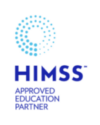
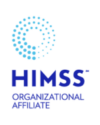
The Health Care Leadership specialization will give students a strong foundational understanding of major health informatics concepts while also equipping them with the specialized skills required to lead a successful team. Students enrolled in the leadership track will be exposed to a number of important topics that are critical for leaders to understand, such as health care law, management, finance and strategic planning. Courses in this track are taught by current and former CFOs, CNOs and other healthcare executives and entrepreneurs, giving students exposure to high level leaders and their relevant professional experience. Graduates of this specialization will be able to effectively manage and grow an informatics team while also overseeing complex human and technology systems.
This track is for students who: have military or civilian health care experience working with electronic medical records and/or other informatics projects, and those who aspire to be consultants or hold health care leadership roles. These roles can include clinical team leader, project manager, department head, chief information officer and chief nursing officer, as well as academic roles such as lecturer in health informatics.
Please note that the Health Care Leadership Specialization is open to new student enrollment every Fall. The next available start term is Fall 2023.
Prior to beginning your first term, you’ll be required to complete the program orientation course, which generally takes about 12-16 hours. The course is self-paced but is mandatory. Please plan your schedule accordingly.
| Course | Units |
|---|---|
|
Learn foundational knowledge and skills in health information management, informatics, and U.S. healthcare delivery, with a focus on compute… |
3 |
|
MS-HCI students starting their degree program after Spring 2024 will not be required to take this course, however it will be offered once a … |
3 |
| Course | Units |
|---|---|
|
Explore the role of leadership in driving innovation and change in healthcare organizations by examining leadership theories, ethics, values… |
3 |
|
Explore the legal principles and strategies for minimizing risk and liability within healthcare systems, and review legal and ethical dilemm… |
3 |
|
MS-HCI students starting their degree program after Spring 2024 will not take this course.… |
3 |
|
MS-HCI students starting their degree program after Spring 2024 will not take this course.… |
3 |
|
Develop skills to evaluate data for the purpose of formulating, resolving, and empirically testing data-driven hypotheses.… |
3 |
|
MS-HCI students starting their degree program after Spring 2024 will not take this course.… |
3 |
|
Equips students with the essential knowledge and skills required for the planning, analysis, design, and implementation of computer-based in… |
3 |
|
Acquire advanced database skills such as database design, data structuring, modeling and the development of database management systems.… |
3 |
| Course | Units |
|---|---|
|
MS-HCI students starting their degree program after Spring 2024 will not take this course.… |
3 |
|
MS-HCI students starting their degree program after Spring 2024 will not take this course.… |
3 |
|
Explore how information technology and healthcare intersect to address modern challenges in health sciences, emphasizing the evaluation of h… |
3 |
| Course | Units |
|---|---|
|
Learn foundational knowledge and skills in health information management, informatics, and U.S. healthcare delivery, with a focus on compute… |
3 |
|
MS-HCI students starting their degree program after Spring 2024 will not be required to take this course, however it will be offered once a … |
3 |
|
Equips students with the essential knowledge and skills required for the planning, analysis, design, and implementation of computer-based in… |
3 |
|
Acquire advanced database skills such as database design, data structuring, modeling and the development of database management systems.… |
3 |
|
Develop skills to evaluate data for the purpose of formulating, resolving, and empirically testing data-driven hypotheses.… |
3 |
|
Examine the intricate hardware and software requirements essential for Electronic Health Records (EHRs), and trace the historical trajectory… |
3 |
|
Explore the role of leadership in driving innovation and change in healthcare organizations by examining leadership theories, ethics, values… |
3 |
|
MS-HCI students starting their degree program after Spring 2024 will not take this course.… |
3 |
|
MS-HCI students starting their degree program after Spring 2024 will not take this course.… |
2 |
|
MS-HCI students starting their degree program after Spring 2024 will not take this course.… |
3 |
|
MS-HCI students starting their degree program after Spring 2024 will not take this course.… |
3 |
|
MS-HCI students starting their degree program after Spring 2024 will not take this course.… |
3 |
|
MS-HCI students starting their degree program after Spring 2024 will not take this course.… |
3 |
|
Explore the legal principles and strategies for minimizing risk and liability within healthcare systems, and review legal and ethical dilemm… |
3 |
As a HIMSS Approved Education Partner (AEP), we congratulate the administration of the University of San Diego for creating an online M.S. in Health Care Informatics that provides an intensive curriculum exposing students to MBA-type courses in many different topics so critical to the health informatics. We are pleased to see topics like financial management, strategic planning and leadership, systems analysis and design, data hygiene/cyber security and others. Further, we applaud the design of the 37-unit program that provides students with the opportunity to take two 7-week courses…
JoAnn W. Klinedinst, M.Ed., CPHIMS, PMP, DES, FHIMSS, FACHE
Vice President of Professional Development, HIMSS
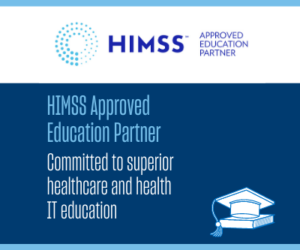
While this will vary from student to student, most part-time campus students, as well as online students, spend approximately 20 hours per week on their studies, split between assigned coursework and participating in their online course discussions and/or seminar. Of course, full-time campus students spend more time due to a larger course load.
In terms of the quality of education you will receive, there is no difference between the online and the on-campus formats of the HCI program. The number of units is slightly different – 37 for the online section and 42 for the campus section, which is primarily due to a campus-based seminar course that is taken each term. In both formats, you will study the same material, learn the same concepts and tactics, have the same faculty, and walk away with the same proficiencies and abilities. On-campus students interact with one another directly within the classroom while online students engage in virtual sessions and online discussion forums. Another minor difference is that online students are required to complete a capstone project in their final term. Finally, the campus section admits new students two times a year (Fall & Spring), whereas the online section admits new students in Fall, Spring and Summer.
While all three tracks will cover some aspect of health care leadership, the courses specific to this track are Advanced Leadership and Systems Management, Digital Health Care Marketing, and Health Care Law and Risk Management.
Typical job titles that graduates of this track pursue include:
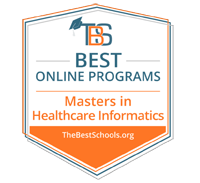
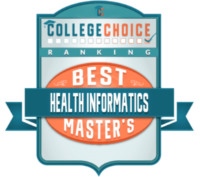
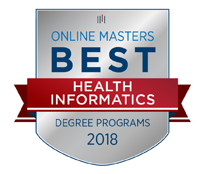
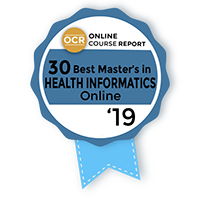
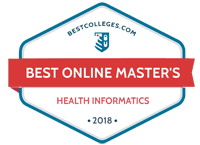
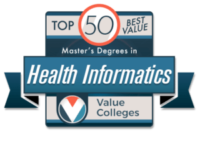


Earn your master’s degree on a schedule that’s convenient for you.